
Caught in the Act, Part 1
The purpose of God’s holy and righteous law is to reflect His character and expose the sinfulness of mankind.

The purpose of God’s holy and righteous law is to reflect His character and expose the sinfulness of mankind.

The reason God gave His law was to show you that you can never measure up to His standard; you can never earn your way into His favor.

Paul shows how the Holy Spirit uses the righteous law of God to bring every sinner to a knowledge and understanding of their sin.

Because of the sinfulness of sin, it will deceive you into thinking that God’s holy law is unrighteous and evil.

Not only does God’s moral law reveal the sinfulness of every human being, it also reveals the deadly consequences of such sinfulness.

Every sin that you struggle with has a corresponding virtue that should be put on in its place. In other words, you must identify your sin struggles, repent, and then put on the opposite virtue.
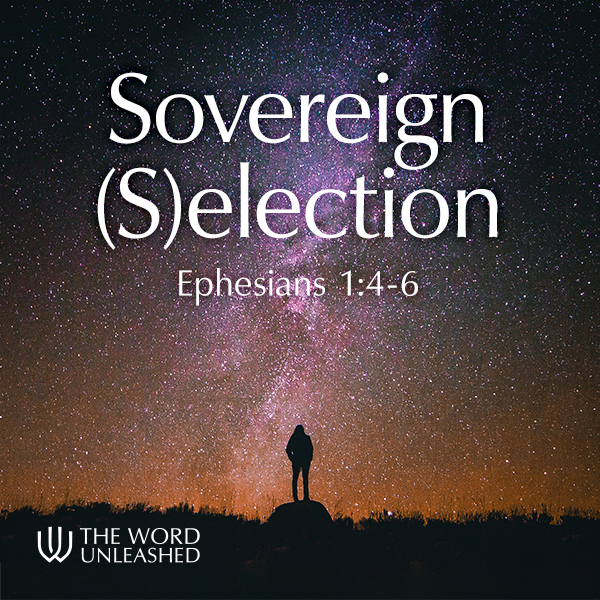
Is the doctrine of election a man-made construct, or is it truly found in the Scriptures?

Election is absolutely sovereign—God predetermined before the foundation of the world who He would save.

The doctrine of election teaches that God’s sovereign choice was individual and personal in nature.

Understanding the doctrine of election will produce a greater love for God and will transform your Christian life and experience.

Was the doctrine of unconditional election taught throughout church history?

Does the doctrine of election completely remove the need to evangelize the lost?

The doctrine of election provides great benefits and blessings to Christians as they navigate through this life.

The doctrine of election deepens our understanding of the love that God has for His people.

God chose you to create a redeemed humanity—to make you holy and blameless before Him, and so that you would be like Jesus Christ in your moral character.

As a Christian, how should you respond to the reality that God adopted you into his family as a son or daughter?

The ultimate purpose behind the doctrine of election is to magnify the glory of God.

The Bible presents six ways in which Christians can glorify God on a daily basis.

What are the driving motivations that compel Christians to live for God?

All human conflict can be traced back to one common source: the unmet cravings of your sinful heart.
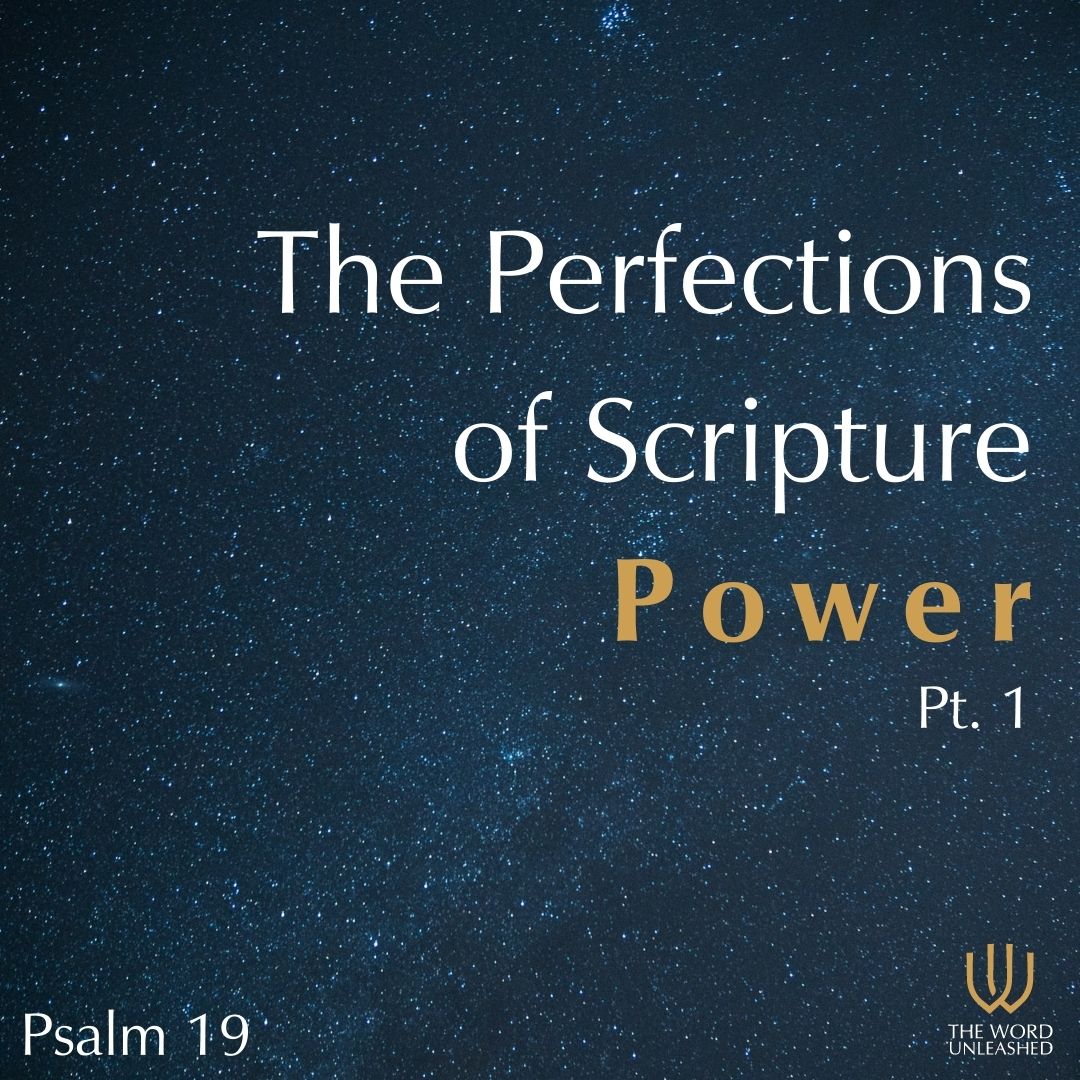
What is the most powerful force on earth? Scientists tell us the most powerful force on earth is the Nuclear Strong Force. The Nuclear Strong force is one of the four fundamental forces in nature—the other three are gravity, electromagnetism, and the weak force. As its name implies, the strong force is the strongest of […]
Christians do not have the freedom to worship God in any manner that they see fit. Rather, believers must follow exactly what God has prescribed in His Word.
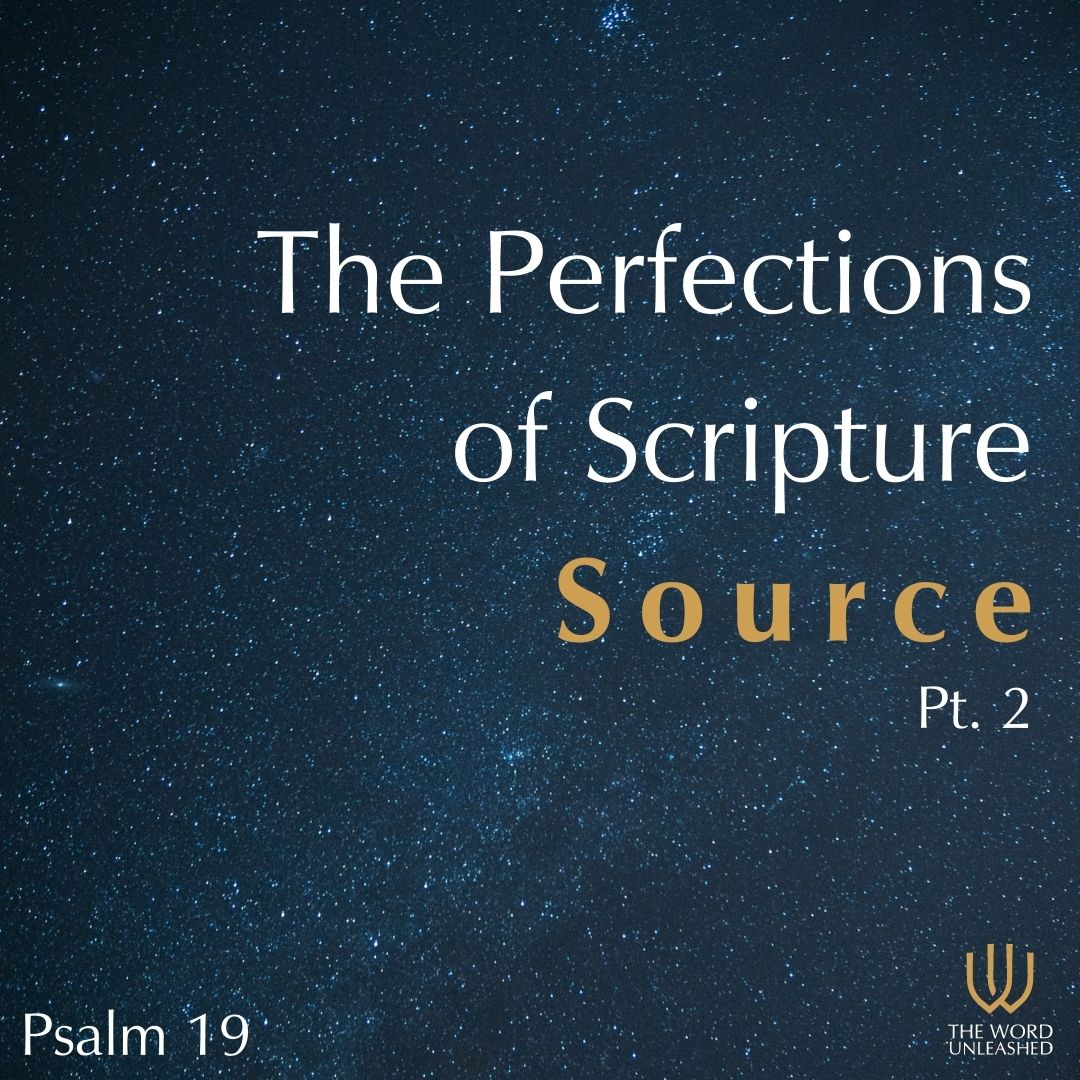
Psalm 19 celebrates the power of Scripture, especially the transforming power of God’s Word to those who respond to it. The message of the second half of Psalm 19 can be summarized in this way: Scripture alone is God’s perfect, complete, and transforming revelation of Himself. In this part of Psalm 19, David expounds on […]
Corporate worship must be founded on certain principles that God has revealed and approved as acceptable worship to Him.
Jesus said for worship to be acceptable in the eyes of God it must be done in spirit and in truth (John 4:24).
The first law of worship is that worship is not external but internal. In other words, pure worship is that which takes place in the heart.
True worship isn’t merely experiential and emotional. Rather, true worship is driven by a knowledge of God and His Word.
Worship is not dependent on a particular environment or a certain type of setting. Instead, worship comes from the sincerity of the heart.
True worship must be built upon God’s truth and His truth alone. It is our understanding of who God is and what He is like that fuels our worship.
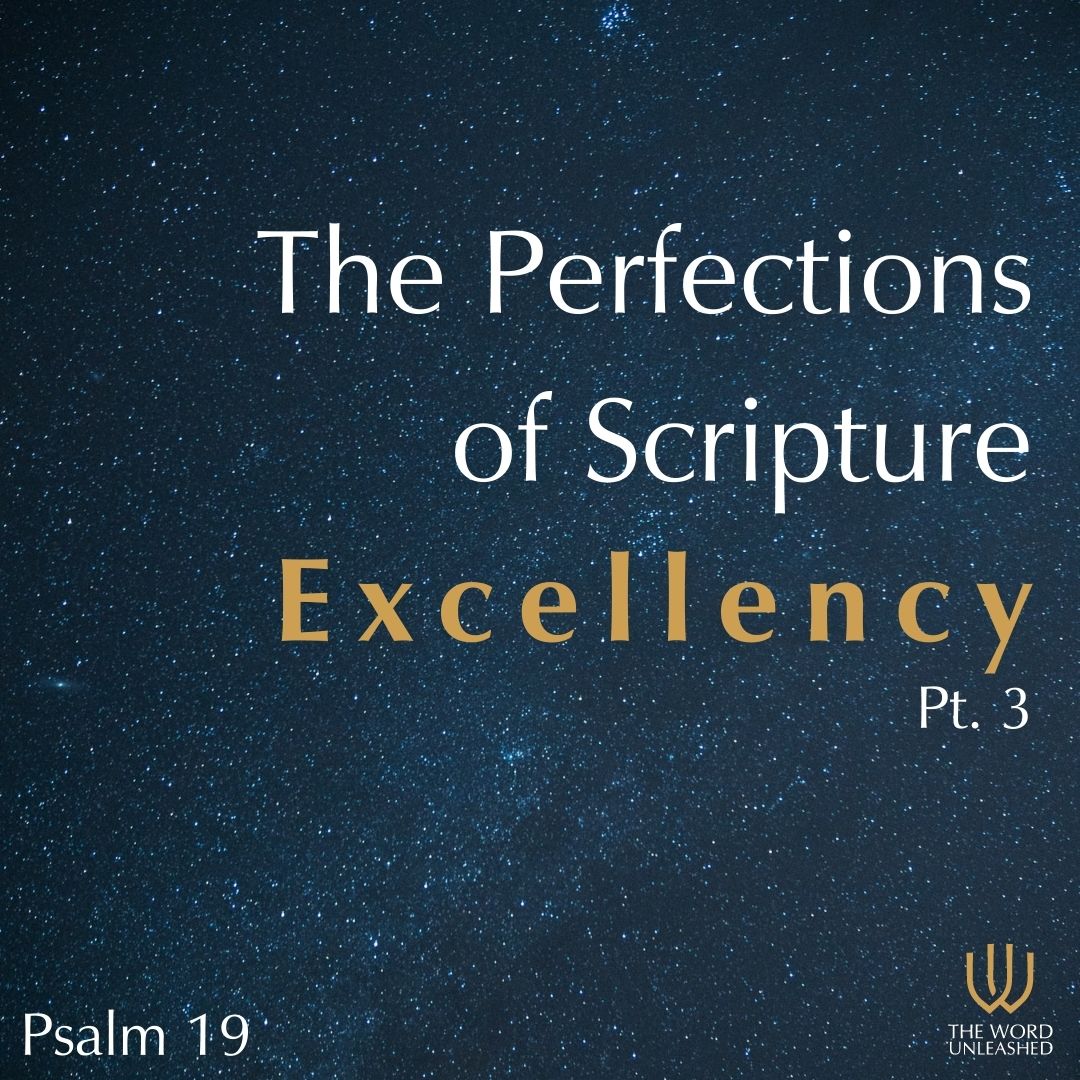
We all have multiple copies of the Bible. You probably have it on your phone or tablet, or maybe you have a hard copy right in front of you. You most likely have several Bibles in multiple locations as do I. But I want you to truly consider this question with me: Do you really […]
People who do not worship God do not understand Him, nor do they understand the depth and breadth of His glory.
A proper response to the greatness and glory of God is a humble submission that bows before Him at His throne.
True worship manifests itself in the praise, adoration, awe, and reverence of the only true God.
The Lord Jesus Christ teaches that worshiping God in truth requires an understanding of Him as He is revealed both in general and special revelation.
In a world adrift in a sea of relativism, Jesus Christ claims that you must worship God, and God alone.
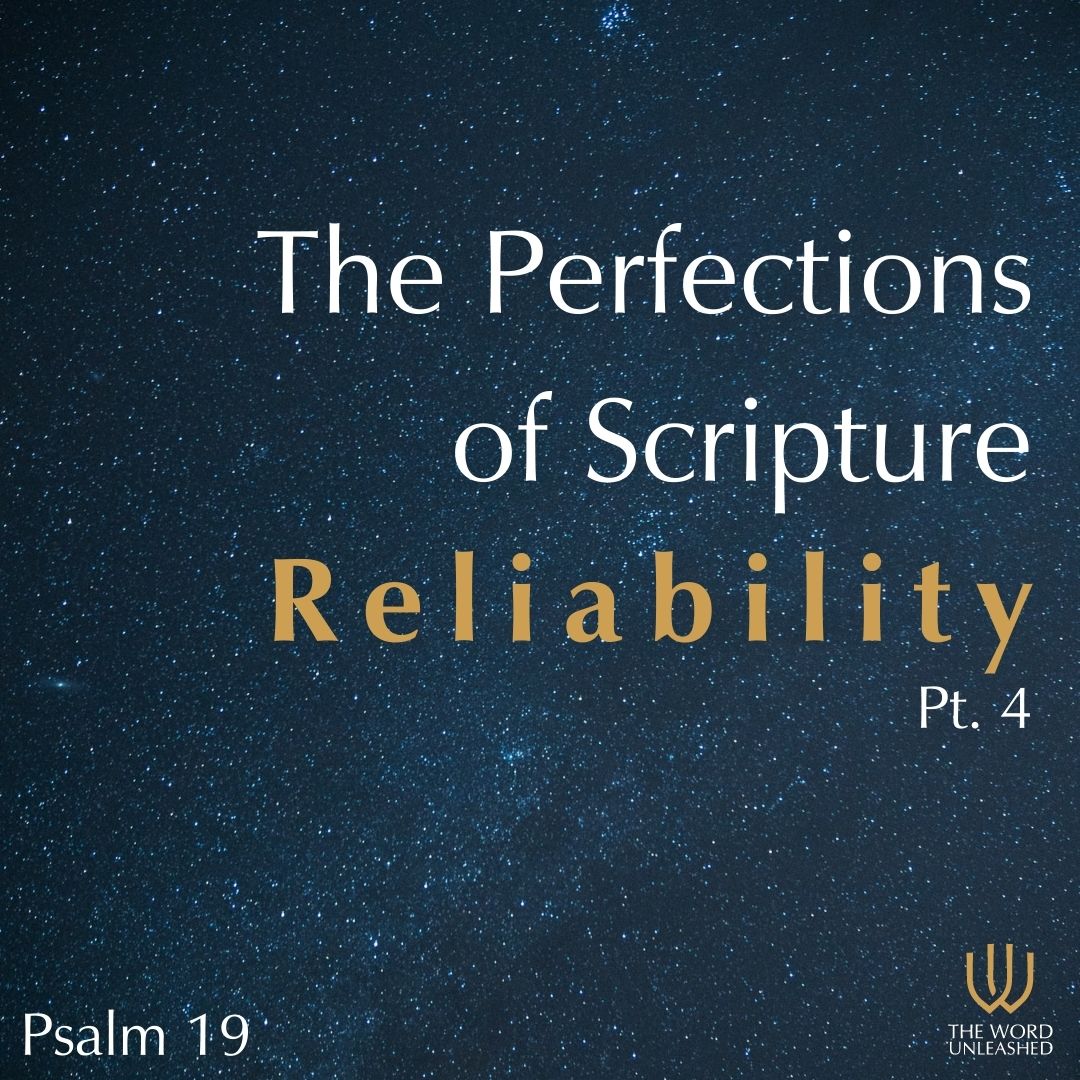
As David continues to expound on the perfections of the Word of God in the latter half of Psalm 19, he argues for its truthfulness and reliability. David writes, “The testimony of the LORD is sure, making wise the simple” (v. 7). The Hebrew word for sure speaks of truth that God Himself testifies of or gives witness too. […]
Authentic worship isn’t built upon the traditions of men. Instead, true worship comes from an understanding of God’s truth, and from a heart that desires to know and praise Him.
If you have not truly repented from your sins, then, in reality, you have never worshiped God for a moment of your life. Repent from your sins and turn to Christ and God will accept your worship.
Christ alone is the mediator between God and men—it is only through Him that anyone can worship God.
True worship must not be generally about God, but must have as its object Jesus Christ.
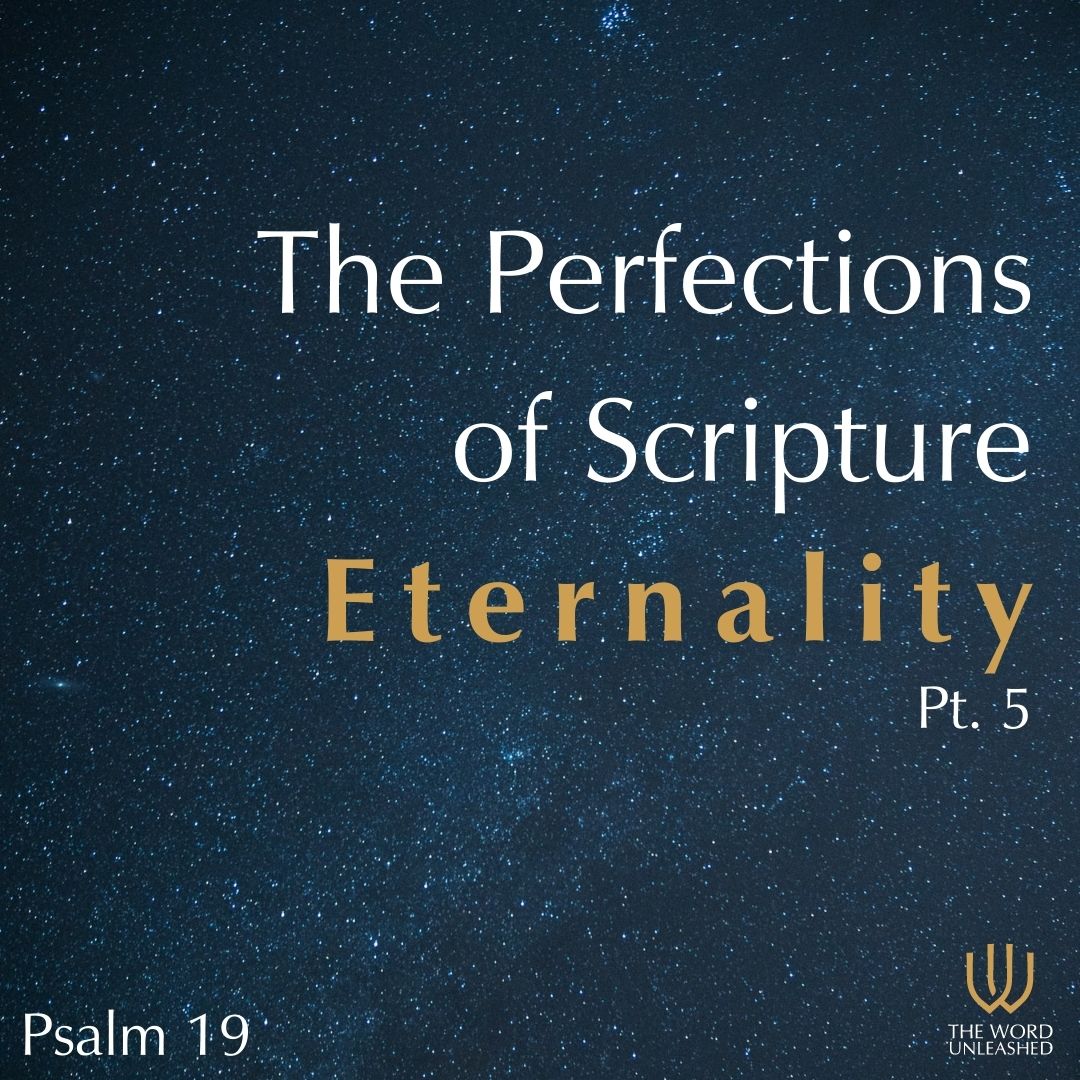
As we continue our study of Psalm 19, we come to a fifth expression of the perfections of Scripture, “The fear of the LORD is clean, enduring forever” (v. 9). “The fear of the Lord” is an unusual title for Scripture and quite frankly, not one we would expect. But David isn’t referring to what […]
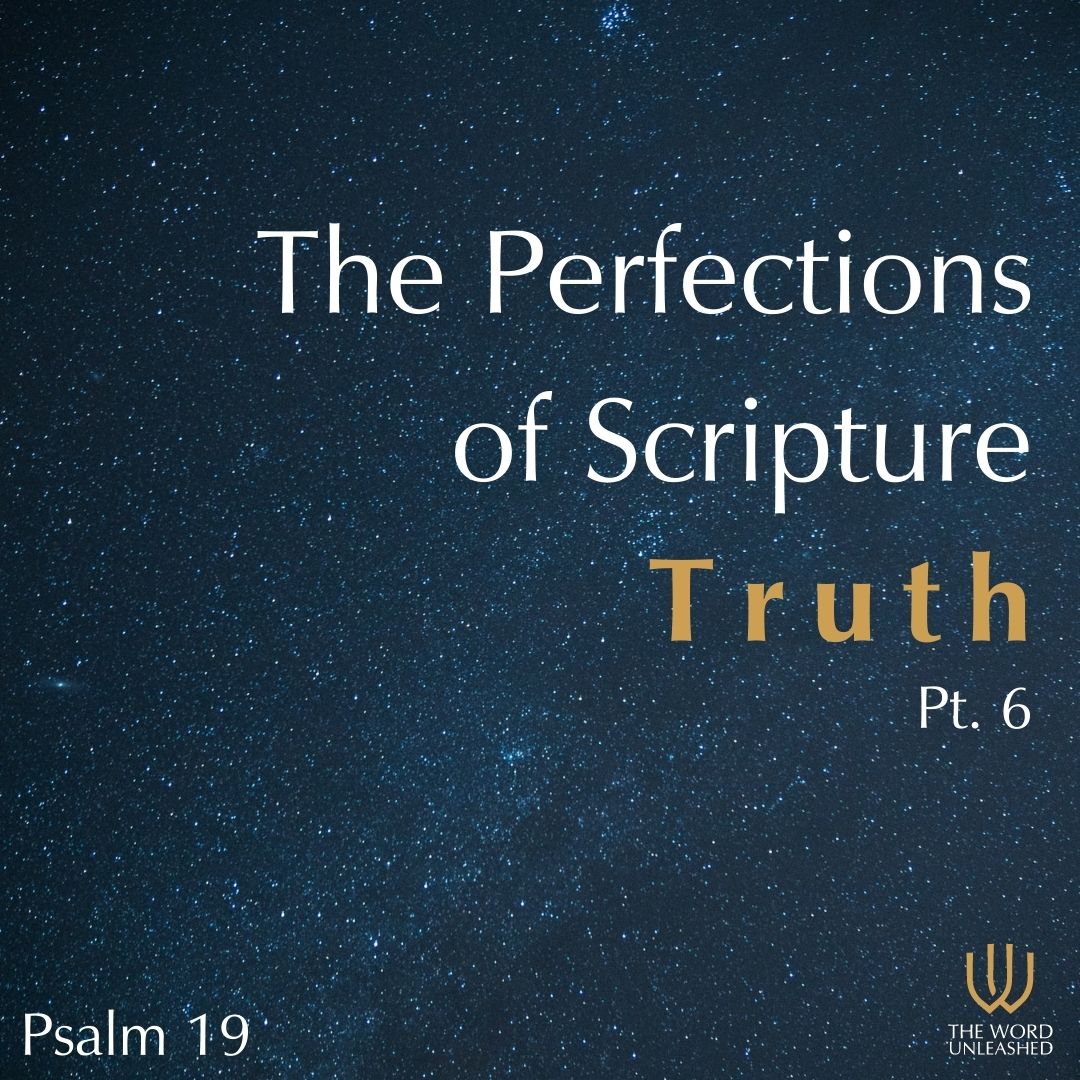
Today, we conclude our series on The Perfections of Scripture by looking at one final characteristic of Scripture found in Psalm 19:9, “The judgments of the LORD are true; they are righteous altogether.” At first glance, “the judgments of the LORD” seems to be an odd description for the nature of Scripture. The Hebrew word […]
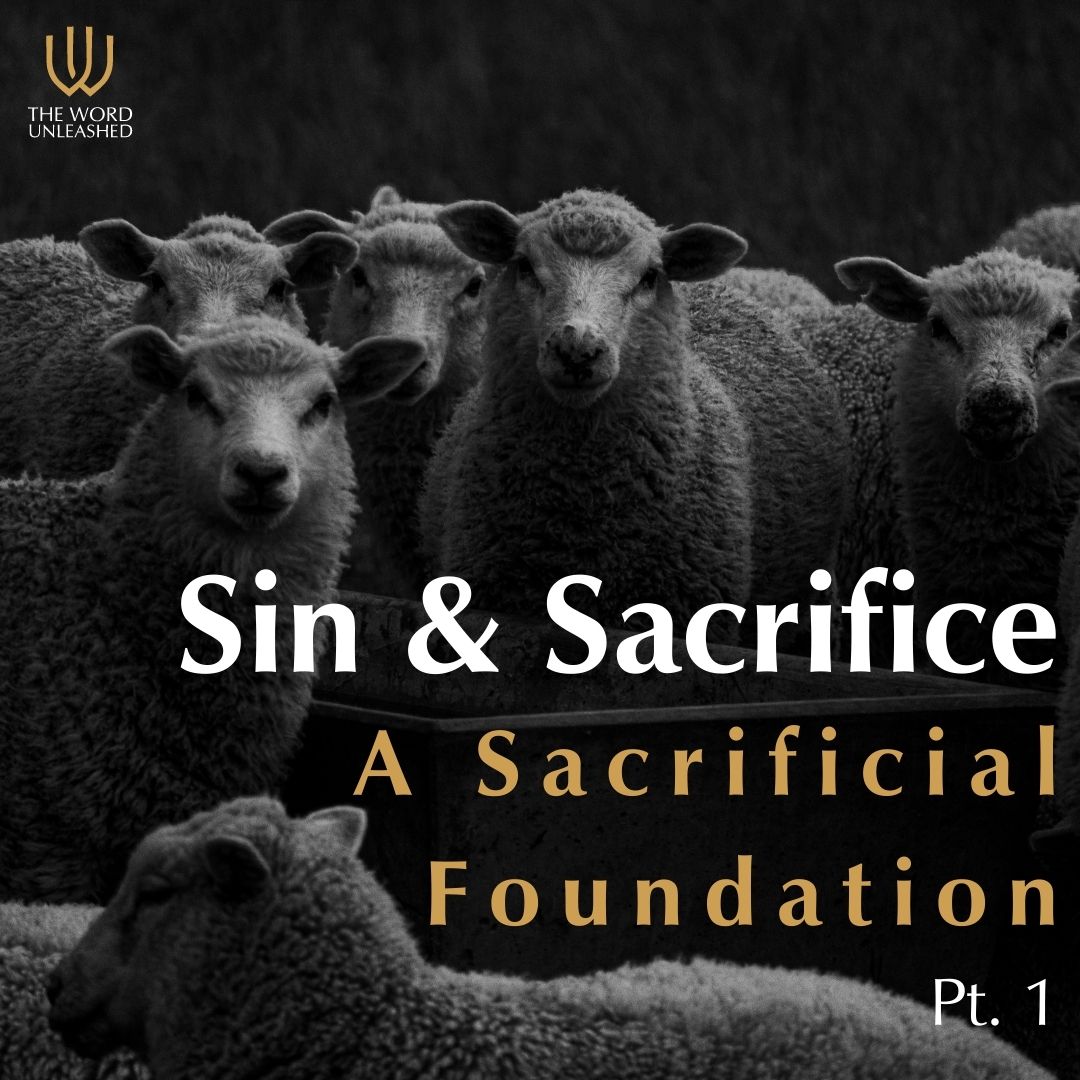
In 1996, I had the opportunity to travel to India. The most indelible memory of that trip was a visit to the Temple of Kali, one of the chief gods in Hinduism. As I exited the temple and walked into the adjoining courtyard, suddenly a couple came in with the intent of cursing one of […]

As we continue to work through Hebrews 10, the author informs us why Jesus’ sacrifice was the ultimate sacrifice, and he does so by contrasting it with the sacrifice that was made on the annual Day of Atonement (Lev. 16). For the nation of Israel, the Day of Atonement was the day when the people’s […]
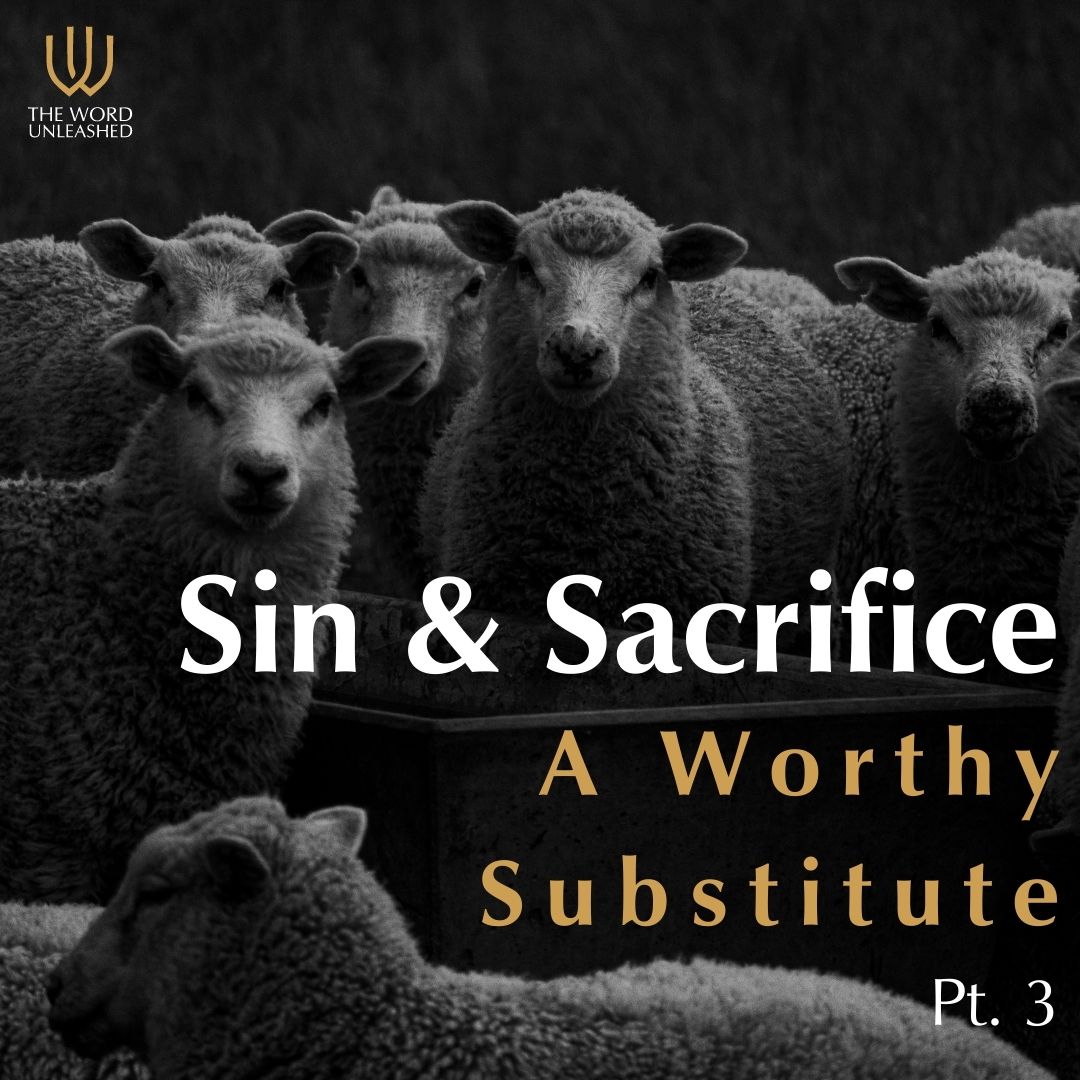
The sacrifices in the Old Testament were like a shadow and were never considered to be the literal image or icon. By way of illustration, your shadow isn’t really you. Instead, it is a vague outline of your human body. In the same way, the sacrificial system in the Old Testament was a shadow not […]
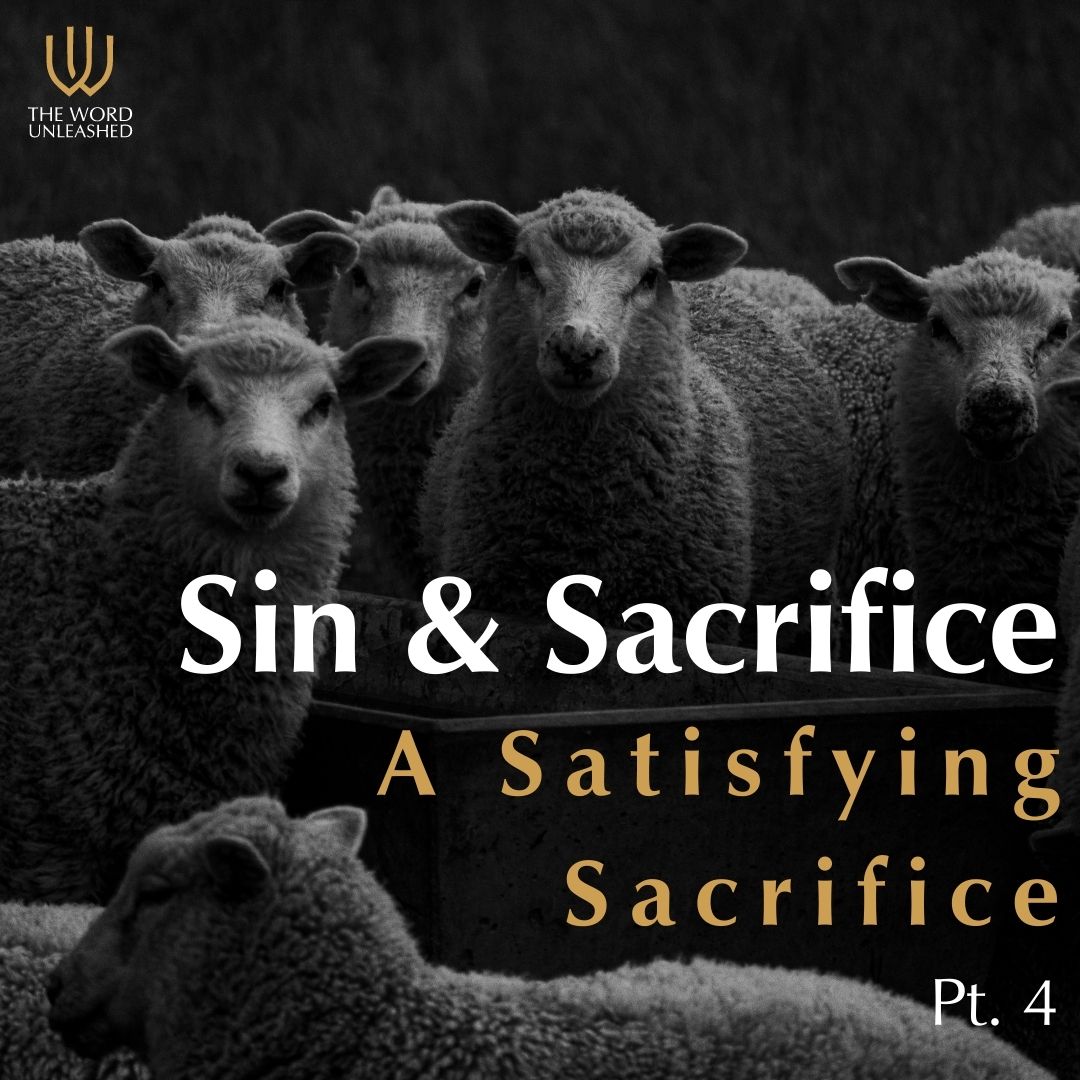
In the Old Testament there was no real relationship between a person’s sin and the animal that was sacrificed—it was only symbolic. The Old Testament believer’s faith was not to be in the death of an animal, but in God who would one day provide a sacrifice that would forever deal with sin. How, then, […]
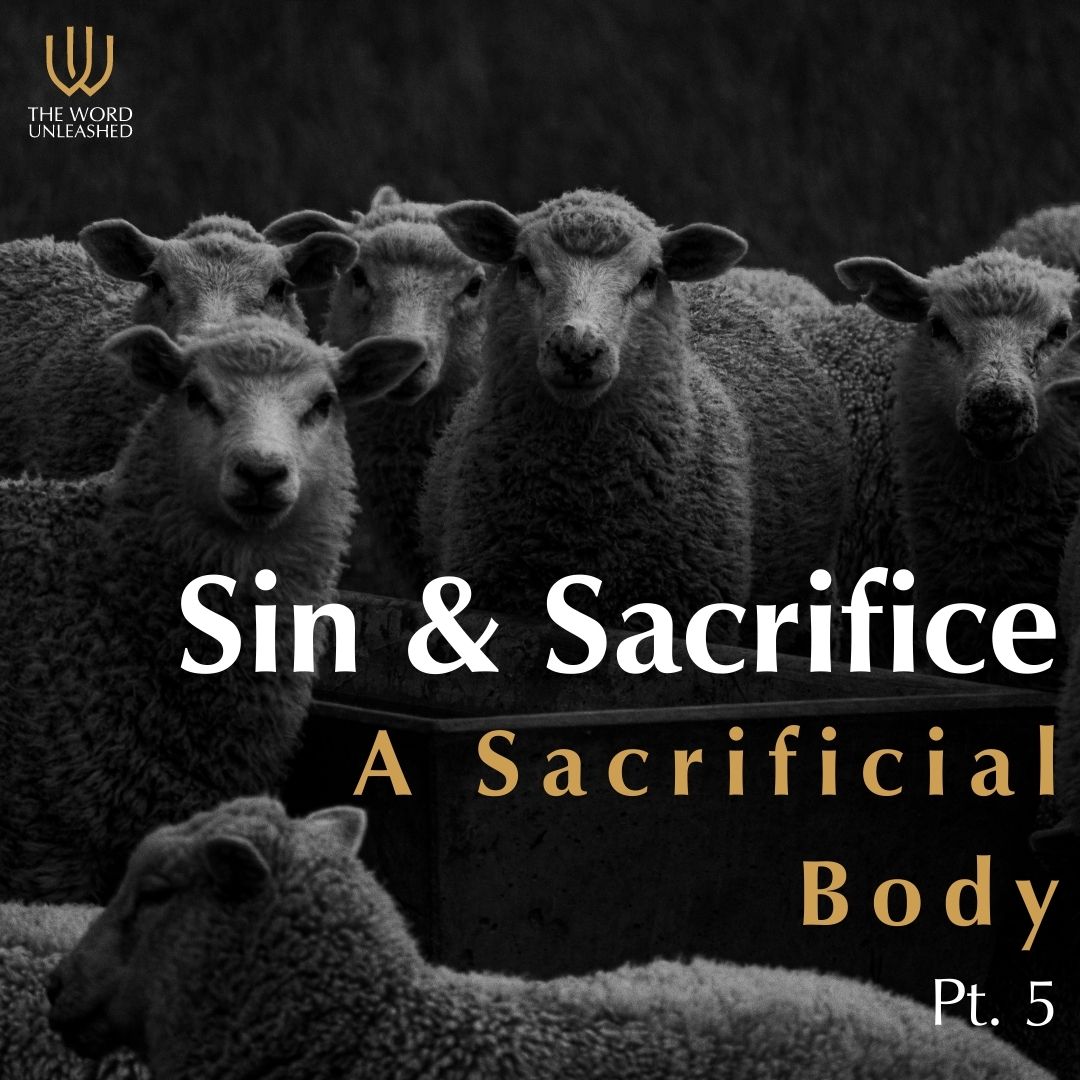
God intended for the sacrifice of His Son to perfectly fulfill and replace the animal sacrifices of the Old Testament. In Hebrews 10, the author demonstrates that Jesus’ death on the cross fulfills those very sacrifices as the perfect substitute. Because our sin calls for death and God’s justice must be satisfied, someone must die. […]
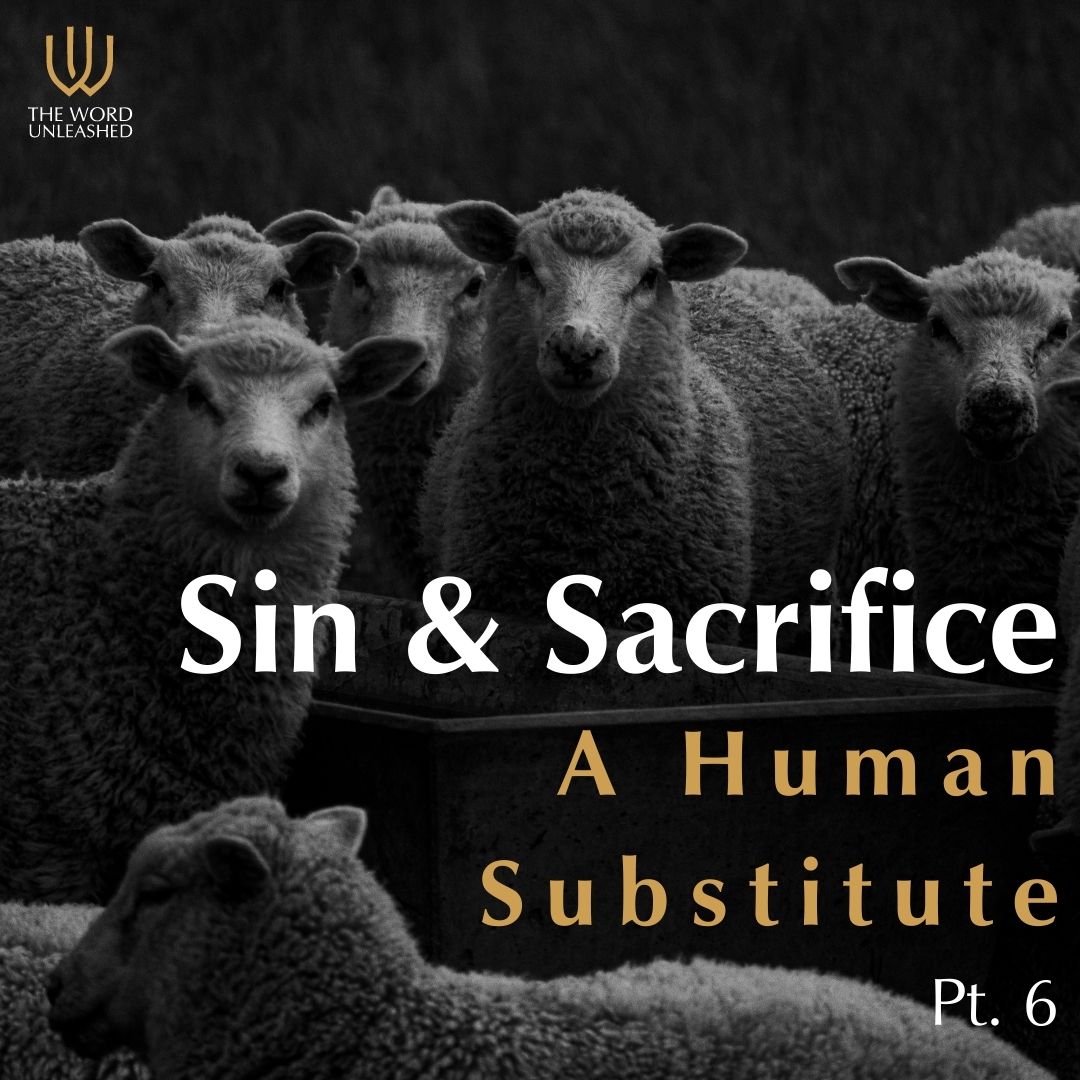
As we continue our series in Hebrews chapter ten, I want us to consider the reality that our Lord Jesus Christ was the perfect human substitute. In eternity past God determined to offer Jesus as a suitable sacrifice for His people. The author of Hebrews captures this truth when he writes, “By this will we […]
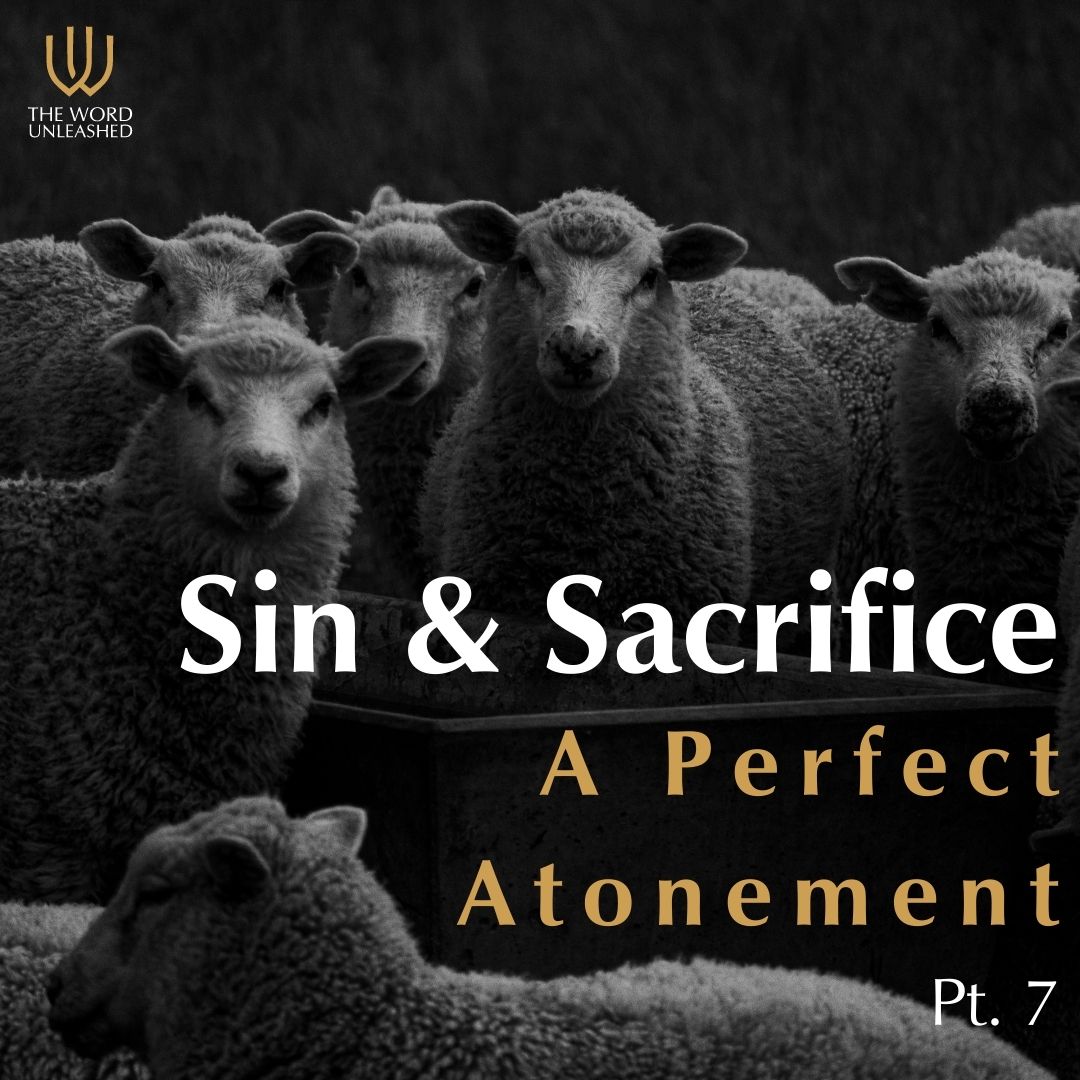
As we continue to look at Hebrews 10, there are some key truths that I do not want us to overlook. The author emphasizes Christ’s one sacrifice that atones for all the sins of every believer, which makes repeated Old Testament sacrifices completely unnecessary. “Every priest stands daily ministering and offering time after time the […]

The past two years have been an unusual time in the history of our country as many people have had to change and alter their work habits. I think it’s appropriate, in light of life’s recent changes, to spend time thinking about an issue that consumes the majority of our lives: work. On average, a […]

As we begin to examine the book of Proverbs as it relates to work, I want us to first take note of the fact that Wisdom teaches that work is a gift that reflects God’s character. In other words, the way we work reflects who God is. Proverbs 8 highlights this reality. In this remarkable […]

As we continue to develop a theology of work from the book of Proverbs, in particular, the gift of work, I want us to consider the two primary ways in which our God is still at work today. First, God is working providentially. That is, not only does God continue to sustain everything He created, […]

I trust that our study of the gift of work has been beneficial and profitable so far. The book of Proverbs—and all of Scripture for that matter—is rich in its teaching on work, and I am thankful we have been able to examine it together. For today, I want us to look at a second […]

Today, as we continue studying the book of Proverbs, in particular, the gift of work, I’d like to consider the sin of laziness. Specifically, how to remedy the temptation to laziness. Proverbs 6:6 says, “Go to the ant, you lazy one, observe its ways and be wise.” The ant mentioned here most likely refers to […]

As Americans, we are not used to the concept of having a king. However, through the most unlikely characters, we are taught what it means to respond rightly to the birth of our King, the Lord Jesus Christ. Those unlikely men are the Magi. The Magi were members of a Persian priestly caste and were […]

“Now I make known to you, brethren, the gospel which I preached to you, which also you received, in which also you stand, by which also you are saved, if you hold fast the word which I preached to you, unless you believed in vain. For I delivered to you as of first importance what […]

It is truly amazing how you can see something every day, but at the same time, not really see it at all. The chief example of this in our lives is the sun. The sun marches across the sky every day and lightens our world and enables us to see. And yet, if we are […]

There are two important issues about the profound truth that Jesus is Lord that are worthy of our attention. Today, I would like to consider the first truth: its basic definition. The Greek word for “Lord” is kurios. The leading Greek lexicon says that the primary meaning of kurios relates to “possession of power or […]
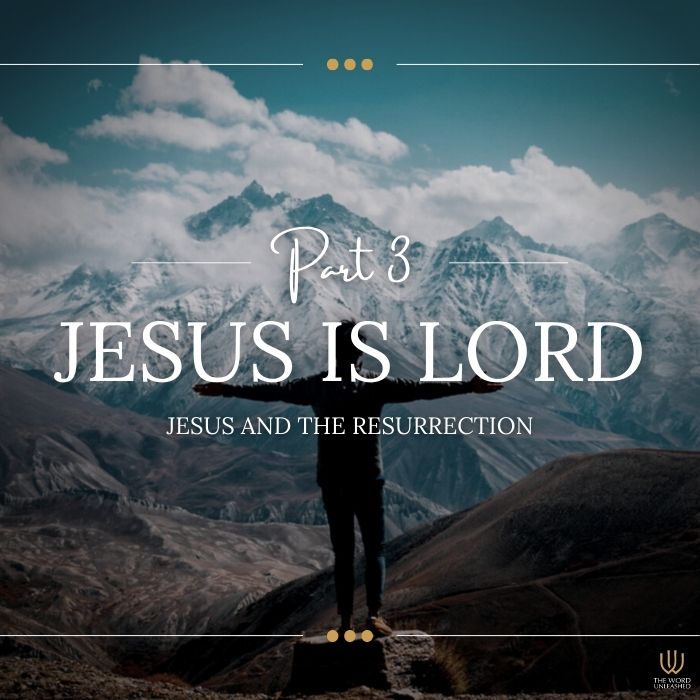
As we continue studying from Scripture what it means that Jesus is Lord, I want us to consider the primary implications of that reality. In other words, what are the main ways the New Testament applies this truth to believers? As I thought through the various implications on this subject, I came up with a […]
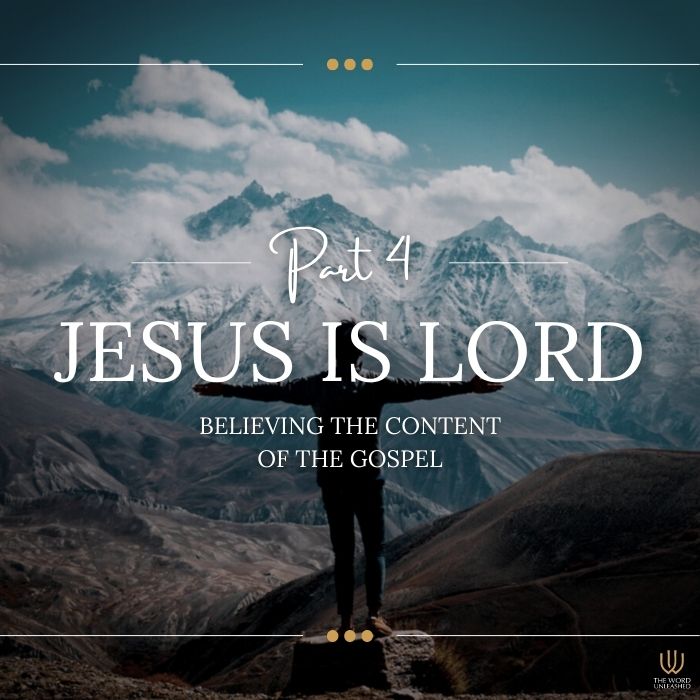
It has been a few weeks since we last studied the great New Testament doctrine that Jesus is Lord. In Romans 10, the apostle Paul makes a powerful case for submitting to Jesus as Lord for salvation. He says that if you confess with your mouth that Jesus is Lord you are really saying that […]

One of the most famous lines in American history is General Douglas MacArthur’s quote: “I shall return.” He said it as the final line in a brief statement that he made to reporters after a harrowing escape from Corregidor and his arrival in Australia during World War II. The full statement reads: “The president of […]
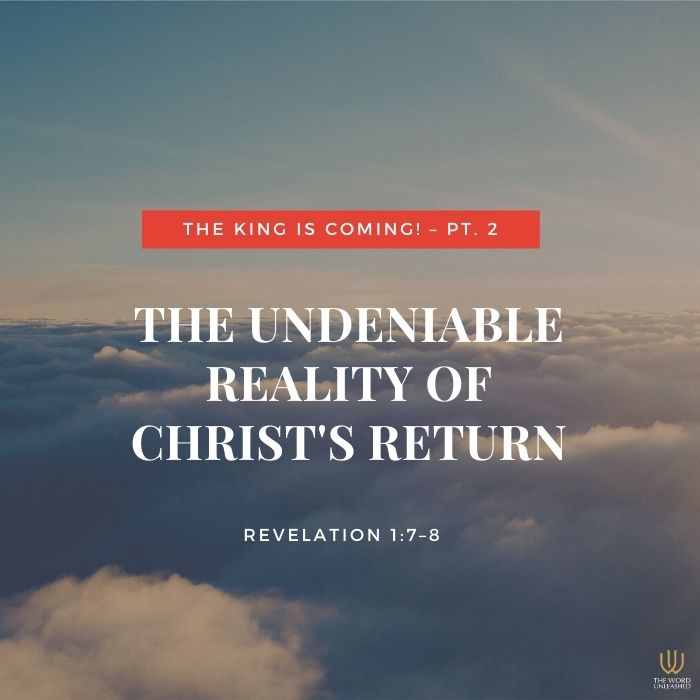
In our study of Revelation 1:7–8, we’ve considered the unparalleled importance of the Second Coming of Christ. This week, we’ll look at its undeniable reality. “BEHOLD, HE IS COMING WITH THE CLOUDS, and every eye will see Him, even those who pierced Him; and all the tribes of the earth will mourn over Him. So […]

After looking at the undeniable reality of the Second Coming, let’s consider the unbroken promise: the fulfillment of Christ’s return in Revelation 1:7–8: “BEHOLD, HE IS COMING WITH THE CLOUDS, and every eye will see Him, even those who pierced Him; and all the tribes of the earth will mourn over Him. So it is […]

A fourth feature we learn about the Second Coming is its unspeakable glory. Revelation 1:7–8 says: “BEHOLD, HE IS COMING WITH THE CLOUDS, and every eye will see Him, even those who pierced Him; and all the tribes of the earth will mourn over Him. So it is to be. Amen. ‘I am the Alpha […]

This week we need to consider the sixth feature of the Second Coming of Christ: its unwavering purpose. Revelation 1:7–8 says: “BEHOLD, HE IS COMING WITH THE CLOUDS, and every eye will see Him, even those who pierced Him; and all the tribes of the earth will mourn over Him. So it is to be. […]

Last week, we covered the first purpose of Christ’s return, the salvation of Israel. This week, we turn to the second reason: the destruction of Jesus’ enemies. Once more, we look at Revelation 1:7-8: “BEHOLD, HE IS COMING WITH THE CLOUDS, and every eye will see Him, even those who pierced Him; and all the […]

The past two weeks, we’ve looked at two reasons for the Second Coming. This week, we look at the final purpose: the vindication of His name. Revelation 1:7–8 says: “BEHOLD, HE IS COMING WITH THE CLOUDS, and every eye will see Him, even those who pierced Him; and all the tribes of the earth will […]
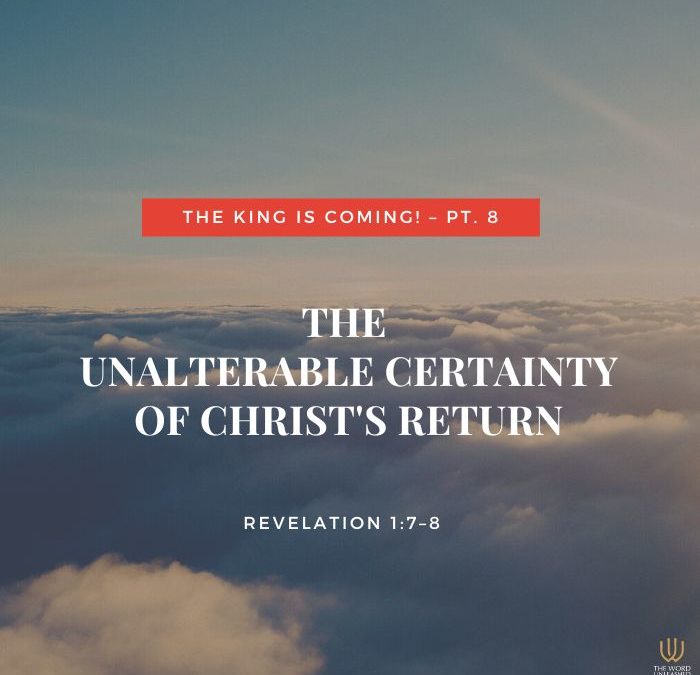
In the final installment of our current series, there is a final feature we must consider about the Second Coming of Christ: its unalterable certainty. Revelation 1:8 is God’s signature on the promise of the Second Coming: “‘I am the Alpha and the Omega,’ says the Lord God, ‘who is and who was and who […]
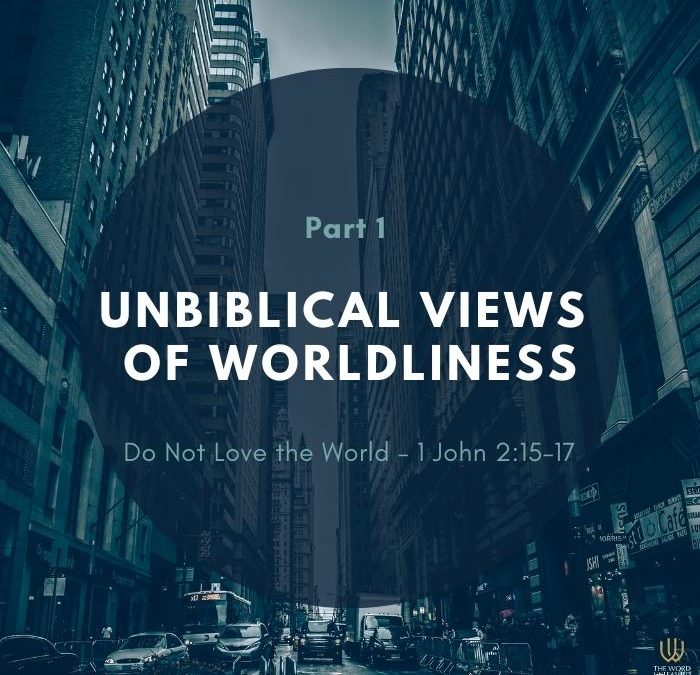
You don’t hear much from today’s pulpits about the concept of worldliness. I think that’s tragic because although the word worldliness isn’t found in Scripture, the concept certainly is. The Apostle John writes, “Do not love the world, nor the things in the world” (1 John 2:15). That seems like a fairly straight forward command, […]
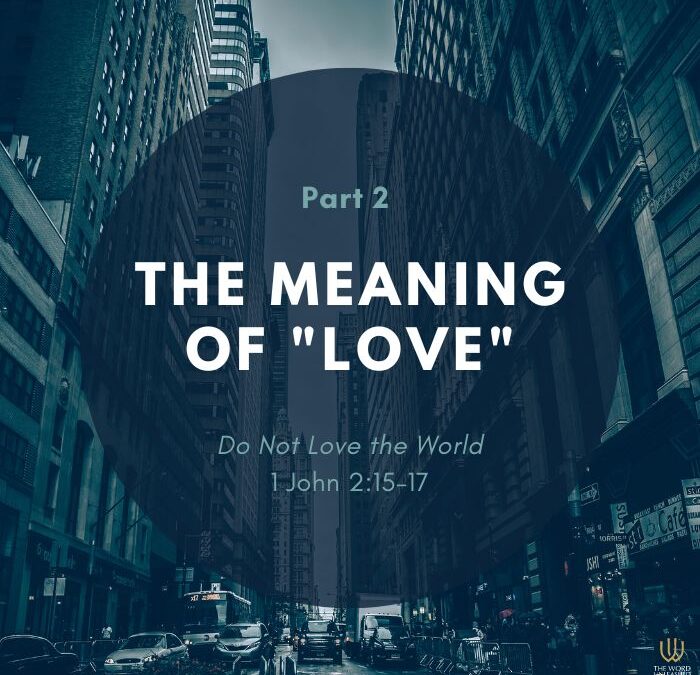
Before we examine the issue of worldliness, we must consider John’s previous insights about love: the divine priority of love and the believer’s commitment to love. These truths are given in 1 John 2:7–17. John’s point is that you can know that you are a Christian and have eternal life because you have a new […]
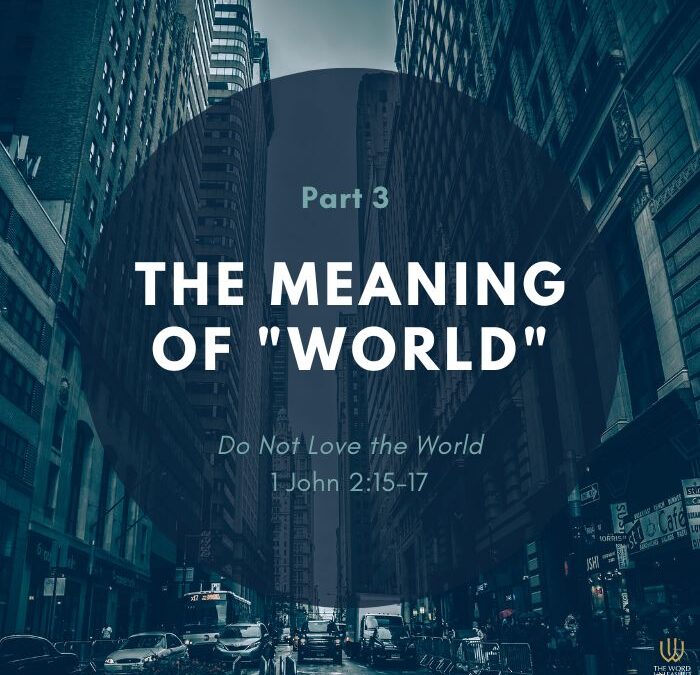
Last time, we saw that John warned his readers to not love the world or the things of the world. The Greek word for “world” is kosmos, and it is by far the most common word for “world” in the New Testament, occurring over 180 times. Its basic meaning is “order or arrangement.” It describes […]

On this Thanksgiving holiday, as you gather with family and friends, I encourage you to make today about more than family, food, and football. Of course, enjoy those things, they are good in their own right—everything good comes from God. But don’t let your Thanksgiving just be about those things. Make a thanksgiving sacrifice, a […]

Last time, we looked at what John means when he says “the world.” Today, let’s consider what John means when he says “Do not love the world, nor the things in the world” (1 John 2:15). John adds, “For all that is in the world, the lust of the flesh and the lust of the […]

The heart of Jesus’ parables at the end of Mark 4 teach us that God is the one who causes the seed to grow; He causes spiritual growth. Our only job as believers is to faithfully proclaim Jesus Christ and His gospel and then to entrust ourselves to our gracious God, who loves to save sinners.

Although the Bible teaches that God is sovereign in salvation, it also teaches that man is responsible for sharing the gospel—or, as Jesus describes in His parable in Mark 4, man is responsible for scattering seed on the ground. This simply means that we as Christians must share the gospel, the Word of God, the seed, with unbelievers and allow God to work in their hearts.

During Jesus’ earthly life and ministry most people rejected His claim as the Messiah of the Old Testament and the only way of salvation. But rather than concluding that His ministry was a failure, Jesus taught in this parable that His kingdom would continue to steadily grow and that the gospel would continue to advance.

In ancient Israel, mustard seeds were recognized as one of the smallest seeds in the area. By all appearances, it was insignificant, but as it grew it became quite large. So it is with Jesus and His spiritual kingdom—it had a small, insignificant run in the first century, but as the Word of God went forth, it would eventually grow into a massive kingdom of Christ’s followers.

First John is essentially a series of tests through which professing Christians can examine themselves to see if they are true Christians. John knew how important that assurance of salvation was in his day, and it is equally important for us today.

The Bible teaches that loving God and loving others is a sign of true salvation. No place is that better explained than in 1 John, chapter 3. In this compelling chapter John gives a specific test that every professing Christian must take in order to determine whether they are truly saved.

In John chapter 3 the apostle John draws several crucial conclusions about how love, or the absence of love, confirms the true condition of the professing Christian’s heart. Those who truly love God and His people can be said to have passed from spiritual death to spiritual life.

In this magnificent chapter the apostle John gives every professing Christian a test to determine whether they are a true Christian. He explains that if you are a professing Christian and you are ruled by an angry, hateful, murderous spirit—especially toward believers—you do not have eternal life in Jesus Christ.

As the apostle John continues to explain why loving God’s people is a sign of true spiritual life, he uses the Lord Jesus Christ as the perfect example of this kind of love. It is Jesus Christ Himself who provides both the definition and the pattern of biblical love. If you want to see what true love for God and His people should look like, Jesus stands as the perfect example of such affection.

The apostle John teaches that love isn’t merely an affection or feeling; it is a true, tangible sign that proves whether someone is a Christian. Authentic love for God and His people is marked by self-sacrificing love—love that looks to meet other people’s needs first rather than your own. The New Testament records that Jesus Christ was the perfect example of this love.

Many professing Christians struggle with the doctrine known as the “assurance of salvation.” This simply means that some Christians are not fully confident that they have spiritual life in Christ. But in the first century, the apostle John wrote 1 John in order to give every Christian assurance of salvation.

The Bible teaches that God is omniscient, that is, He knows all things. And as the apostle John continues to argue that true love is a sign of spiritual life in Jesus Christ, he reminds his readers of the omniscience of God in order to give them confidence in their salvation.

In 1 John 3, the apostle John explains that loving God’s people gives us as Christians an assurance of salvation. But at the same time, this assurance must also give us confidence to boldly approach the throne of God in prayer. John’s point is that if we truly are sons and daughters in the family of God, we must have confidence that our heavenly Father wants us to pray to Him and that he also hears every single one of those prayers.

The Bible teaches that true Christians are those who have repented of their sins and believed in the Lord Jesus Christ. The Bible also teaches that you can have assurance of your salvation by examining whether you truly love God and His people.

Unfortunately, today there is much confusion surrounding the doctrine of the assurance of salvation, so it is necessary that we as Christians know and understand the key biblical presuppositions as they relate to this important doctrine.

In 1 John 3 the apostle John makes a definitive statement as it relates to salvation: He says that you must believe in the name of God’s Son, Jesus Christ. John is saying that the only possible way of salvation is through the Lord Jesus Christ. But there are several key truths that you must believe in order to be saved, and John lays them out clearly in 1 John 3:23.

According to the apostle John, whoever claims to be a Christian must consistently live a life characterized by holiness and love. In particular, Christians must demonstrate a biblical love for God and a biblical love for His people.

Unfortunately, professing Christianity is filled with many false teachings and misrepresentations about the third member of the Trinity, the Holy Spirit. But the Holy Spirit plays a vital role in the believer’s assurance of salvation, so it is important to understand the Bible’s teaching on this issue.

The crucial truth that Christ is the Head of His church is powerfully pictured in the first chapter of the book of Revelation, in the vision the apostle John had of the glorified Christ. John writes, “I saw seven golden lampstands; and in the middle of the lampstands I saw one like a son of […]
Recent Comments